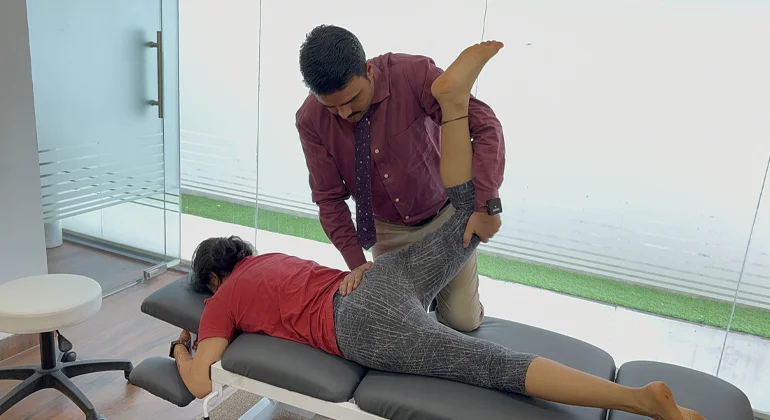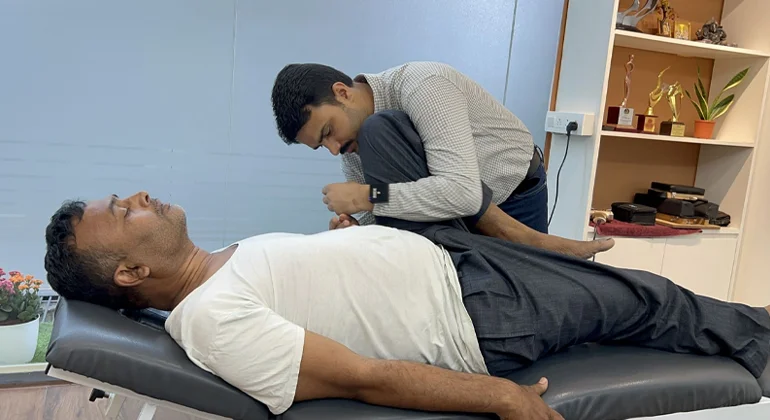
At Painflame, we provide specialized physiotherapy treatments in Gurgaon to help patients recover from injuries, manage chronic pain, and regain mobility. Whether you need therapy for back pain, sports injuries, or post-surgery rehabilitation, our highly skilled physiotherapists offer personalized care to speed up your recovery and help you live pain-free.
Say goodbye to pain and hello to feeling great again with Painflame’s physiotherapy services. Reach out to us today to start your journey to a brighter and healthier well being of you.
Why Choose Painflame for Physiotherapy in Gurgaon??
At Painflame, we offer the best physiotherapy services designed to deliver long-lasting results. Here’s why patients choose us for their recovery:
- Experienced Physiotherapists: Our certified physiotherapists specialize in treating a wide range of conditions, including back pain, knee injuries, and post-surgery recovery.
- Advanced Treatment Techniques: We use a variety of advanced methods like manual therapy, electrotherapy, and exercise therapy to relieve pain and restore mobility.
- Personalized Care Plans: Every patient receives a custom treatment plan designed to meet their specific needs and recovery goals.
- Convenient Location: Our clinic in Gurgaon is easily accessible, ensuring you receive the care you need in a timely manner.
Conditions We Treat with Physiotherapy
We offer physiotherapy for a wide range of conditions, helping you recover faster and improve your overall well-being.
Back Pain Physiotherapy in Gurgaon
Back pain is one of the most common conditions we treat. Our back pain physiotherapy plans focus on pain relief, posture correction, and mobility restoration. Whether you suffer from lower back pain, herniated discs, or sciatica, we offer customized treatments like manual therapy and spinal mobilization.
Knee Pain Physiotherapy for Injury and Arthritis
Knee pain, caused by arthritis, ligament injuries, or post-surgery recovery, requires specific rehabilitation. Our knee rehabilitation programs include joint mobilization, muscle strengthening, and pain management to restore knee function and reduce discomfort.
Shoulder Pain Physiotherapy
For patients with shoulder pain caused by conditions like rotator cuff injuries or frozen shoulder, we offer tailored treatment plans. Our shoulder rehabilitation program includes manual therapy and exercises designed to restore mobility and reduce pain.
Hip Pain Physiotherapy
Hip pain can be caused by conditions like arthritis, bursitis, or labral tears. Our physiotherapists provide specialized treatments to reduce pain and restore hip mobility. We also offer post-hip replacement rehabilitation to help you recover smoothly after surgery.
Sports Injury Physiotherapy
For athletes recovering from sports injuries, our physiotherapists provide customized programs to improve strength, flexibility, and mobility. Whether you’re dealing with muscle strains, ligament tears, or sports sprains, we offer effective rehabilitation programs that promote long-term recovery.
Post-Surgery Physiotherapy for Faster Recovery
Our post-surgical physiotherapy is designed to help you regain strength and function after surgery. We provide rehabilitation after knee replacement, spinal surgery, and joint replacements. Our approach ensures a safe and smooth recovery process.
Arthritis and Joint Pain Management
Physiotherapy is highly effective in managing arthritis and joint pain. We offer treatments for osteoarthritis and rheumatoid arthritis that focus on improving flexibility, reducing stiffness, and alleviating pain.
Sciatica and Nerve Pain Treatment
Our physiotherapy treatments for sciatica help relieve nerve pain and improve mobility. We use techniques like nerve mobilization and core strengthening exercises to address the root causes of sciatica and provide long-term relief.
Neurological Conditions
Physiotherapy plays a crucial role in managing neurological conditions like stroke, Parkinson’s disease, and multiple sclerosis. Our therapists provide treatments to improve balance, mobility, and overall motor function for these patients.
Types of Physiotherapy Treatment
Sports Physiotherapy: Sports physiotherapy is a specialized field within physiotherapy that concentrates on preventing, treating, and rehabilitating sports-related injuries. It encompasses personalized assessment, treatment, and rehabilitation strategies designed to improve athletes’ performance and facilitate their recovery process.
Orthopaedic Physiotherapy: Orthopaedic physiotherapy is a specialized field addressing musculoskeletal conditions and injuries.
It harnesses techniques like manual therapy and exercises to rehabilitate fractures, joint issues, and ligament injuries, aiming to improve mobility, strength, and function while reducing pain and preventing future problems.
Pediatric Physiotherapy: Paediatric physiotherapy is a type of therapy for kids. It helps children who have trouble moving or doing physical activities because of conditions like muscle or bone problems. The therapy uses exercises and games to make kids stronger and help them move better.
Neurological Physiotherapy: Neurological physiotherapy is a specialized field of physical therapy that focuses on helping people with neurological conditions such as stroke, Parkinson’s disease, multiple sclerosis, or spinal cord injury. The aim is to improve movement, balance, strength, and overall function through exercises, stretching, and other techniques tailored to each individual’s needs.
Cardiovascular Physiotherapy: Cardiovascular physiotherapy is a special type of therapy for people with heart problems. It helps them get stronger and healthier after heart issues like heart attacks or surgeries. It uses exercises and lifestyle changes to make the heart and body work better, so people can feel better and do more activities.

The Benefits Of Physiotherapy
Physiotherapy plays a significant role in managing and alleviating pain, whether it's chronic pain resulting from conditions like arthritis or acute pain following an injury or surgery.
- Enhanced Pain Relief and Management.
- Improves Balance.
- Improves Mobility and Movement.
- Relief in Ankle Pain.
- Enhanced Strength & Endurance.
Enhanced Pain Relief and Management: Physiotherapy techniques such as manual therapy, exercise therapy, and electrotherapy can effectively alleviate pain by targeting the underlying causes of discomfort. By addressing muscle imbalances, reducing inflammation, and improving joint mobility, physiotherapy helps manage pain and promotes a better quality of life.
Improves Balance: Through targeted exercises and balance training, physiotherapy helps improve proprioception (the body’s awareness of its position in space), coordination, and stability. This not only reduces the risk of falls and injuries but also enhances overall mobility and confidence in daily activities.
Improves Mobility and Movement: Physiotherapy focuses on restoring and enhancing mobility through exercises aimed at improving flexibility, strength, and range of motion. By addressing muscle tightness, weakness, and joint stiffness, physiotherapy helps individuals move more freely and perform activities of daily living with greater ease.
Relief in Ankle Pain: Physiotherapy offers specific interventions tailored to address ankle pain, such as manual therapy techniques to mobilize the ankle joint, therapeutic exercises to strengthen the surrounding muscles, and modalities like ice or ultrasound therapy to reduce pain and inflammation.
Enhanced Strength & Endurance: Physiotherapy incorporates exercises that target muscle strengthening and conditioning, leading to improved strength, endurance, and overall physical fitness. Whether recovering from an injury or managing a chronic condition, building strength and endurance is essential for optimal function and well-being.
Management of Chronic Conditions: Physiotherapy plays a crucial role in managing chronic conditions such as arthritis, fibromyalgia, and chronic back pain. By providing tailored exercise programs, pain management techniques, and lifestyle modifications, physiotherapy helps individuals better cope with their condition, reduce symptoms, and improve function.
Faster Recovery from Injuries: Physiotherapy accelerates the healing process by promoting tissue repair, reducing inflammation, and restoring function following an injury. Through a combination of manual therapy, therapeutic exercises, and modalities, physiotherapy helps individuals recover faster and regain mobility and strength.
Stress Relief & Mental Well-being: Physical activity and movement-based therapies incorporated into physiotherapy can help reduce stress, anxiety, and depression. By releasing endorphins (natural mood elevators) and promoting relaxation, physiotherapy contributes to improved mental well-being and overall quality of life.
Our Services
- Prolapse disc
- Plantar fasciitis
- Tennis elbow
- Golfer’s elbow
- Ankle sprain
- Sports Injury
- Paralysis
- Bell’s palsy
- Carpal tunnel syndrome
- Scoliosis
- Knee ligament injury
- Hip arthritis
How Physiotherapy treatment helps with pain?
Physiotherapy treatment is a highly effective approach for managing a wide array of pain types, encompassing conditions such as back pain, neck pain, joint pain, and muscular discomfort. Unlike merely addressing the symptoms, physiotherapy delves deeper, targeting the underlying root causes of pain. By focusing on these origins, physiotherapists aim not only to alleviate existing discomfort but also to prevent its recurrence, offering patients enduring relief and improved quality of life.
When your back hurts, physiotherapy treatment can help by giving you exercises to make your stomach and back muscles stronger, fixing your posture, and making sure your spine is in line. This helps to fix any problems with your muscles or how your spine is positioned, which can take the strain off your back and make the pain less.
If your neck is hurting, physiotherapy treatment can use hands-on techniques to relax the tight muscles in your neck and give you exercises to make your neck move better and be more stable. They might also look at how you work or sit and suggest changes to stop your neck from hurting, like making sure your desk is set up right or changing how you move if you do the same thing over and over.
When your joints ache, like from arthritis or injury, physiotherapy can help by making your joints move better, reducing any swelling, and making the muscles around your joints stronger. They might use special techniques to move your joints gently, give you exercises to do, or even use things like hot or cold treatments to ease the pain and make your joints work better.
If your muscles are sore, physiotherapy treatment can use different techniques to help, like using their hands to relax tight muscles, showing you stretches to do, or using machines that send small amounts of electricity or sound waves to help your muscles heal. These things can help your muscles feel better, become more flexible, and heal faster.
Overall, physiotherapy is a way to help with pain that’s tailored just for you. It’s not just about making the pain go away for now, but also giving you tools and tips to stop it from coming back. By finding out what’s causing your pain and making changes to fix it, physiotherapy can help you move better, feel stronger, and live without pain.
Benefits of Physiotherapy at Painflame
Patients who choose Painflame for their physiotherapy experience numerous benefits, including:
- Pain Relief Without Surgery: Our non-invasive treatments help relieve pain and discomfort without the need for medications or surgery.
- Faster Recovery: Whether recovering from an injury or surgery, our treatments accelerate recovery by improving mobility and strength.
- Prevention of Future Injuries: We focus on preventing future injuries by strengthening muscles and improving posture.
- Personalized Care: Our physiotherapists design personalized treatment plans to meet your unique needs, ensuring optimal recovery.

-
What is physiotherapy?
Physiotherapy, also known as physical therapy, is a healthcare profession that focuses on improving movement and function, relieving pain, and preventing injury through physical methods such as exercise, manual therapy, and education.
-
Who can benefit from physiotherapy?
Physiotherapy can benefit people of all ages and backgrounds, including those recovering from injury, surgery, or illness, individuals with chronic conditions, athletes looking to improve performance or prevent injuries, and anyone experiencing pain or mobility issues.
-
What conditions can physiotherapy treat?
Physiotherapy can address a wide range of conditions, including back pain, neck pain, joint pain, muscle strains, sprains, arthritis, neurological disorders, sports injuries, post-operative rehabilitation, and more.
-
How does physiotherapy work?
Physiotherapy works by assessing each individual's unique needs and developing personalized treatment plans to address their specific goals and challenges. This may involve a combination of exercises, manual therapy techniques, modalities such as heat or ice therapy, and education on self-management strategies.
-
What should I expect during a physiotherapy session?
During a physiotherapy session, you can expect your therapist to conduct an initial assessment to evaluate your condition, discuss your goals, and create a treatment plan tailored to your needs. Treatment sessions may involve exercises, hands-on techniques, and guidance on home exercises and self-care.
-
How long does physiotherapy treatment take?
The time it takes for physiotherapy treatment can be different for each person. It depends on things like what's causing the problem, what you want to achieve, and how your body responds to treatment.. Some may require only a few sessions for acute issues, while others with chronic conditions may benefit from ongoing or periodic therapy to manage symptoms and maintain function.
-
Is physiotherapy painful?
Physiotherapy techniques are designed to alleviate pain and improve function, but some interventions may cause temporary discomfort or soreness, particularly during manual therapy or therapeutic exercises. However, therapists strive to ensure that treatments are safe, effective, and tolerable for each individual.


